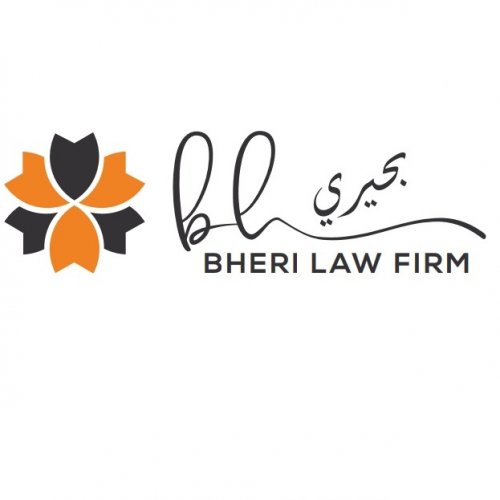Best Education Law Lawyers in Tripoli
Share your needs with us, get contacted by law firms.
Free. Takes 2 min.
List of the best lawyers in Tripoli, Libya
About Education Law in Tripoli, Libya
Education Law in Tripoli, Libya, encompasses a wide array of legal issues related to the structure, administration, and operations of educational institutions. This branch of law deals with everything from school governance, student rights, and teacher employment, to issues of educational equity and discrimination prevention. In Libya, educational legislation ensures that schools comply with national standards and protect the rights of students and educators alike. The legal framework aims to promote an environment where quality education is accessible for all, adhering to both domestic and international standards.
Why You May Need a Lawyer
Individuals or organizations may require legal assistance in Education Law in various situations. This includes disputes over student admissions, disciplinary actions, or special education accommodations. Schools and educational institutions may also seek legal counsel for navigating compliance issues or resolving employment disputes with teachers and staff. Moreover, parents might need legal protection to ensure their children's rights to education are fulfilled, or to address cases of bullying or discrimination.
Local Laws Overview
Education Laws in Tripoli are shaped by both national policies and specific local regulations. Key aspects include compulsory education requirements, which mandate educational provisions up to a certain age. Laws focus on ensuring non-discriminatory practices in enrollment and treatment within educational settings. Teacher qualifications and labor laws are another focal point, setting standards for employment and protection of educators' rights. Additionally, there are bylaws defining the governance and operational standards of private and public educational institutions, ensuring that institutions operate within the legal requirements established by Libyan authorities.
Frequently Asked Questions
What age range does compulsory education cover?
In Libya, compulsory education typically covers children from ages 6 to 15, ensuring foundational education is accessible to all children.
What are my child's rights regarding education?
Every child has the right to free and equal access to quality education, protection from discrimination, and an educational environment that supports their development.
Can a student be expelled without a hearing?
No, students have the right to a fair hearing before any significant disciplinary action, such as expulsion, is finalized.
What recourse do I have if my child is discriminated against at school?
Parents can file a complaint with the school administration or local education authorities. If unresolved, seeking legal advice to pursue further action may be necessary.
Are private schools subject to the same laws as public schools?
While both types of institutions must adhere to national educational standards, private schools have more flexibility in curriculum design but must still follow fundamental rights and safety regulations.
What legal standards must teachers meet to be qualified?
Teachers are required to have appropriate educational credentials and undergo periodic evaluations to ensure they meet the teaching standards set by the Ministry of Education.
How do special education services work under the law?
Educational institutions are required by law to provide appropriate accommodations and support for students with disabilities, tailored to their specific needs.
Can foreign students enroll in Libyan schools?
Yes, foreign students can enroll in Libyan schools, but they must meet specific visa and enrollment requirements set by educational authorities.
What are the penalties for a school not complying with education laws?
Non-compliance can lead to administrative penalties, fines, and in severe cases, closure of the institution by authorities.
What legal protections are there for teachers against wrongful termination?
Teachers have the right to due process and can contest wrongful termination through an established legal process, often requiring mediation or settlement.
Additional Resources
There are several resources available to those needing assistance with Education Law in Tripoli, Libya. The Ministry of Education provides guidelines and updates on educational policies. Additionally, the Libyan Civil Society is active in advocating for educational rights. Legal aid services may be available through local non-profit organizations that specialize in educational issues. Individuals can also seek information from educational institutions directly, which are mandated to have counseling services for legal matters.
Next Steps
If you need legal assistance with Education Law in Tripoli, follow these steps: First, clearly document your concerns and gather any necessary evidence. Consult with a legal expert specializing in Education Law to understand your options. You may contact local legal aid offices or attorneys for a consultation. It is often beneficial to also engage with your local educational institution's administrative offices to seek resolution before legal action is taken. Should legal proceedings be necessary, ensure you have compliance with all procedural requirements as advised by your lawyer.
Lawzana helps you find the best lawyers and law firms in Tripoli through a curated and pre-screened list of qualified legal professionals. Our platform offers rankings and detailed profiles of attorneys and law firms, allowing you to compare based on practice areas, including Education Law, experience, and client feedback.
Each profile includes a description of the firm's areas of practice, client reviews, team members and partners, year of establishment, spoken languages, office locations, contact information, social media presence, and any published articles or resources. Most firms on our platform speak English and are experienced in both local and international legal matters.
Get a quote from top-rated law firms in Tripoli, Libya — quickly, securely, and without unnecessary hassle.
Disclaimer:
The information provided on this page is for general informational purposes only and does not constitute legal advice. While we strive to ensure the accuracy and relevance of the content, legal information may change over time, and interpretations of the law can vary. You should always consult with a qualified legal professional for advice specific to your situation.
We disclaim all liability for actions taken or not taken based on the content of this page. If you believe any information is incorrect or outdated, please contact us, and we will review and update it where appropriate.









